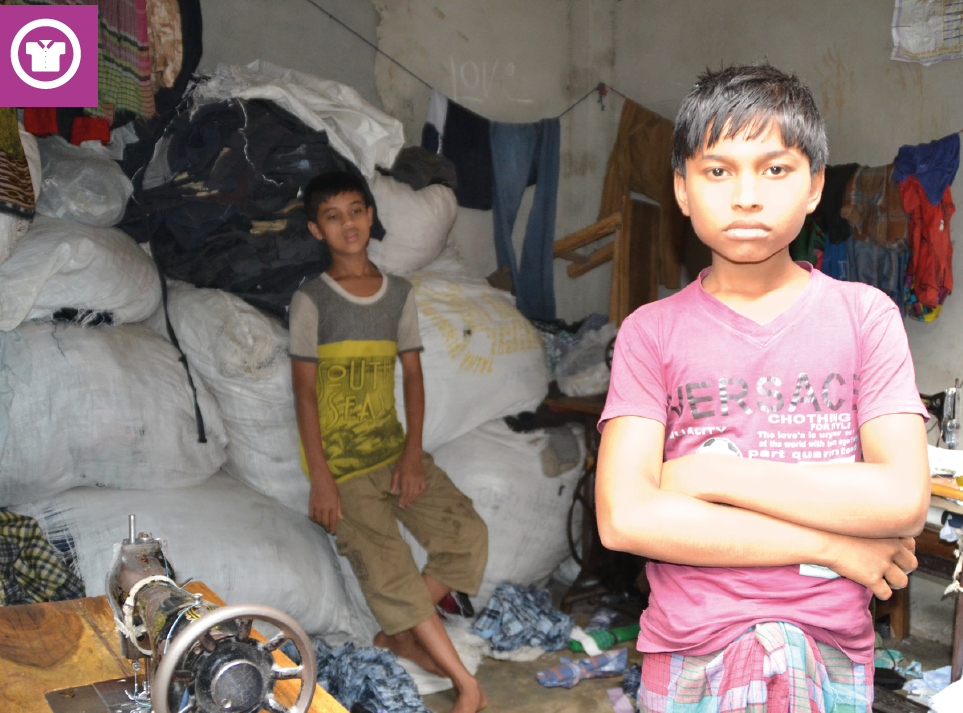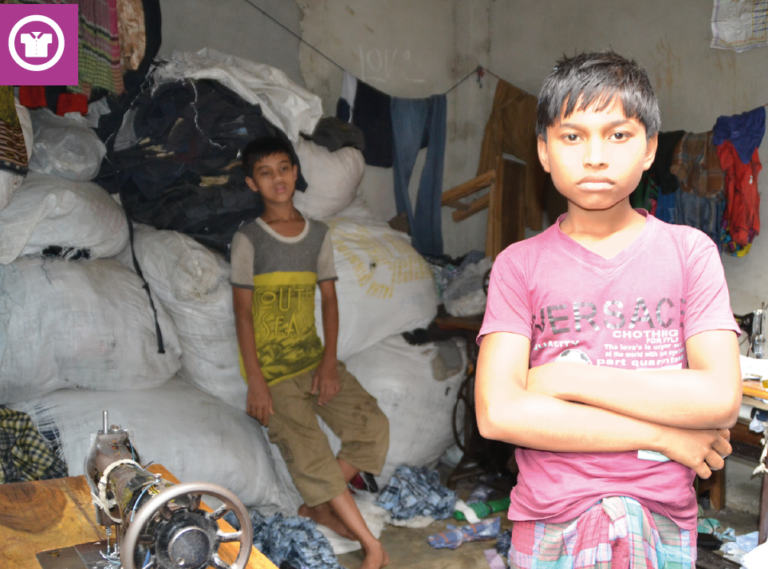
Living wage higher on the agenda
“Branded Childhood,” by SOMO and the Dutch coalition Stop Child Labour (SCL), is a report exposing the tragedy many parents working in the Bangladeshi garment industry face given that the average worker earns one third of what is considered a living wage and cannot afford to pay for their kids to go to school.
The low wages and long working hours, according to the SOMO/SCL research findings, lead many parents working in the Bangladeshi garment industry to take their kids out of school and either put them into paid work or make them stay at home to take over running the household.
By preventing workers from receiving a living wage, the garment companies including both the buying and supplying companies, also contribute to a system that perpetuates child labour and violates children’s rights.
Living wage must be a condition within international CSR covenants and Dutch public procurement
SCL and SOMO’s report exposed some of the hidden truths about child labour by making the link between the low wages paid to Bangladeshi garment workers and the school dropouts rates of those workers’ children, which resulted in the adoption of a motion(opens in new window) in the Dutch House of Representatives to make a living wage a condition within international CSR covenants and Dutch public procurement.
With the motion members of Parliament from the Christian Union and Labour Party requesting the Dutch government to:
- adopt a time-bound plan on ‘living wage’ as a condition within a more rigorous public procurement policy;
- encourage local authorities to proceed with such a policy;
- make this also part of all International CSR covenants;
- inform the Parliament about the efforts and results.
Living wage higher on the political and corporate agendas
The findings in the report also resulted in questions asked of the Minister of Foreign Trade and Development Cooperation, Minister Ploumen, about the Dutch government’s role in addressing the problems and risks in the garment supply chain. Minister Ploumen agreed garment workers not making a living wage directly contributes to child labour and school dropouts and stated that the Netherlands actively promotes the necessity of providing living wages. She also supported the recommendation that this issue needs to be put higher on the agenda of brands, producers, the government of Bangladesh and also in multi-stakeholder initiatives and recognizes that the objective of achieving a living wage must be addressed collectively.
European collaboration
Voordewind (Christion Union) and Servaes (Labour Party) aksed the Minister whether she is prepared to bring the report to the attention of European colleagues, to which she replied:
“The report provides support for the need to work together to bring the importance of a living wage and freedom of association to the attention of the Government of Bangladesh. Both in Bangladesh and for example in the context of the EU Garment Initiative there is close cooperation in this area with the European Commission.”
Read here the full questions and answers(opens in new window) .
Partners
Related content
-
Branded Childhood Published on:
 Martje TheuwsPosted in category:Publication
Martje TheuwsPosted in category:Publication Martje Theuws
Martje Theuws
-
 Garment brands contribute to low wages, long working hours, child labour and school dropouts in BangladeshPosted in category:NewsPublished on:
Garment brands contribute to low wages, long working hours, child labour and school dropouts in BangladeshPosted in category:NewsPublished on: -


